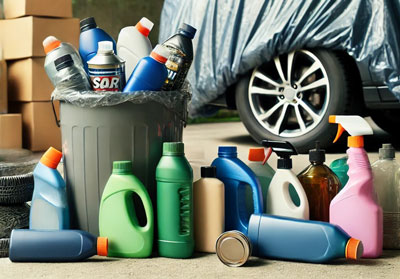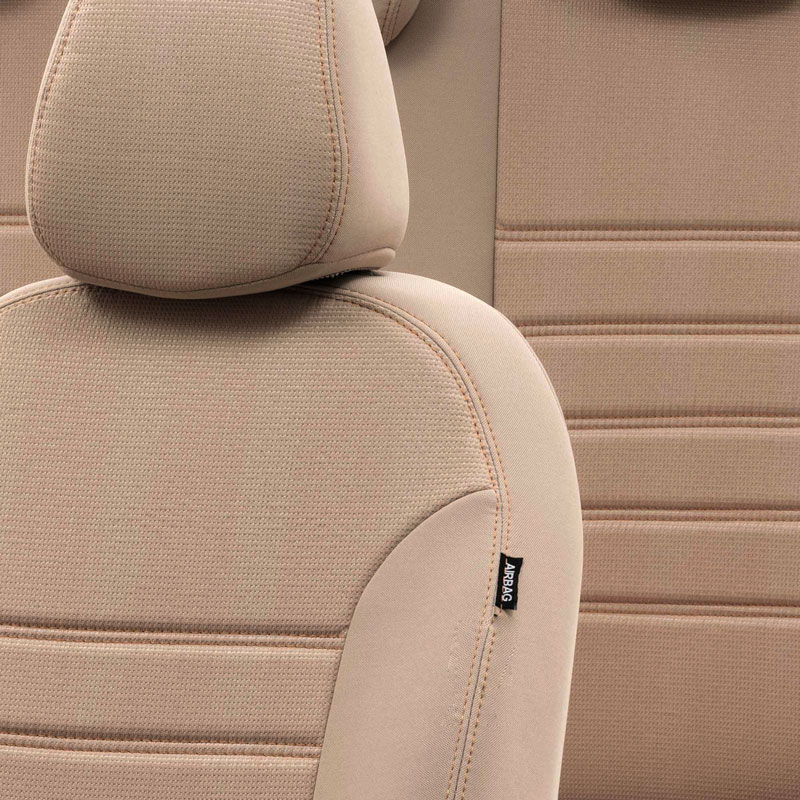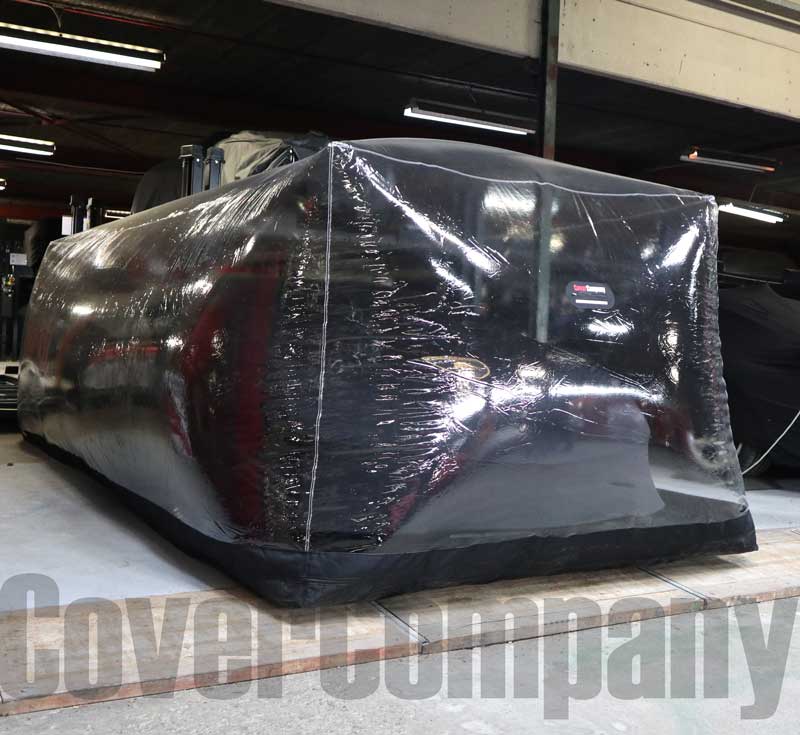Shop now.Pay it in 4.

Clearpay is unregulated credit.
Use responsibly.T&Cs & late fees
apply at clearpay.co.uk/terms
Eco-Friendly Car Care: How Car Covers protect both your vehicle and the environment
Eco-Friendly Car Care: How Car Covers protect both your vehicle and the environment
 In an era where environmental awareness is increasingly important, even the smallest changes can make a significant difference. One often overlooked tool in the fight for sustainability is the humble car cover. While primarily designed to protect your vehicle, car covers also offer substantial environmental benefits. By reducing the frequency of car washes, minimizing the use of cleaning products, conserving energy, and extending the lifespan of your vehicle, car covers contribute to a more eco-friendly lifestyle. This blog post will explore these benefits in detail and offer additional eco-friendly car maintenance tips to help you further reduce your environmental impact.
In an era where environmental awareness is increasingly important, even the smallest changes can make a significant difference. One often overlooked tool in the fight for sustainability is the humble car cover. While primarily designed to protect your vehicle, car covers also offer substantial environmental benefits. By reducing the frequency of car washes, minimizing the use of cleaning products, conserving energy, and extending the lifespan of your vehicle, car covers contribute to a more eco-friendly lifestyle. This blog post will explore these benefits in detail and offer additional eco-friendly car maintenance tips to help you further reduce your environmental impact.
1. Reduction in Water Usage
Water conservation is a critical aspect of environmental sustainability, and car covers play a surprisingly effective role in this.
- Less Frequent Car Washes: A high-quality car cover acts as a shield, protecting your vehicle from dust, dirt, bird droppings, and other environmental contaminants. This protective barrier means your car stays cleaner for longer, reducing the need for frequent washes. Considering that a single car wash can use between 40 to 140 gallons of water, depending on whether you wash it at home or use a commercial service, the cumulative water savings can be substantial.
- Environmental Impact of Car Washes: Traditional car washes can contribute to water pollution due to the runoff of detergents and other chemicals. These substances can contaminate rivers, lakes, and oceans, harming aquatic life and ecosystems. By reducing the number of car washes your vehicle requires, a car cover helps minimize this environmental impact.
2. Decreased Use of Cleaning Products
 Car maintenance often involves the use of various cleaning agents, many of which contain harmful chemicals. These products, while effective in maintaining your vehicle's appearance, can have detrimental effects on the environment.
Car maintenance often involves the use of various cleaning agents, many of which contain harmful chemicals. These products, while effective in maintaining your vehicle's appearance, can have detrimental effects on the environment.
- Less Dependence on Detergents and Polishes: By using a car cover, you protect your car’s surface from contaminants that would typically necessitate regular cleaning and polishing. This reduces the frequency with which you need to apply these products, many of which contain volatile organic compounds (VOCs) that contribute to air and water pollution.
- Chemical Runoff: When vehicles are washed, the runoff containing soap, wax, and other chemicals often flows into storm drains and eventually reaches natural water bodies. This can lead to the accumulation of toxic substances in the environment. Using a car cover to keep your car clean reduces the need for such products, thereby cutting down on harmful runoff.
3. Energy Conservation
The process of cleaning a car, particularly through automated car washes, is energy-intensive. These facilities require significant amounts of electricity to operate the machinery, heat the water, and power the drying systems.
- Lower Energy Consumption: By decreasing the frequency of car washes, car covers indirectly help conserve energy. Every time you skip a trip to the car wash, you’re saving the energy that would have been used to power the equipment. Over time, this can add up to a meaningful reduction in your carbon footprint.
4. Extended Vehicle Longevity
One of the lesser-known benefits of using a car cover is its ability to extend the life of your vehicle. By protecting it from environmental damage, a car cover can help maintain your car’s appearance and functionality for longer, which has significant environmental benefits.
- Protection from Environmental Damage: Car covers guard against a variety of environmental threats, including UV rays, acid rain, bird droppings, and tree sap, all of which can damage your car's paint and finish. Over time, this protection helps prevent rust, fading, and other forms of deterioration, which means your car stays in better condition for longer.
- Less Need for Repairs and Repainting: Preventing environmental damage also reduces the need for repairs and repainting, which are often energy-intensive and involve the use of harmful chemicals. By keeping your car in good condition, a car cover helps minimize the environmental footprint associated with vehicle maintenance.
5. Reduction in Plastic Waste
The use of disposable materials in car care, such as plastic wraps, single-use towels, and packaging for cleaning products, contributes significantly to plastic pollution.
- Fewer Disposable Car Wash Materials: When you use a car cover and reduce the frequency of car washes, you also cut down on the use of these disposable items. This helps decrease the amount of plastic waste generated, which is crucial for combating the growing problem of plastic pollution.
Eco-Friendly Car Maintenance Tips
In addition to using a car cover, there are several other ways you can maintain your vehicle in an environmentally friendly manner. Here are some tips:
- Choose Biodegradable Cleaning Products: When washing your car, opt for biodegradable soaps and cleaning agents. These products are less harmful to the environment and break down more easily in water, reducing the impact on aquatic ecosystems.
- Use Waterless Car Wash Solutions: Waterless car wash products are an excellent alternative to traditional washing methods. They allow you to clean your car without using water, further conserving this precious resource.
- Maintain Tire Pressure: Properly inflated tires improve fuel efficiency, which in turn reduces your car's emissions. Regularly check your tire pressure to ensure it is within the recommended range. This simple habit can have a significant impact on your car's environmental footprint.
- Regular Engine Maintenance: Keeping your engine in good condition is essential for reducing your car's emissions. Regular oil changes, air filter replacements, and timely servicing can help your engine run more efficiently.
- Recycle Used Motor Oil and Batteries: When performing maintenance tasks like oil changes or replacing your car’s battery, be sure to recycle the used oil and old battery properly.
- Limit Air Conditioning Use: Excessive use of your car’s air conditioning system can increase fuel consumption and emissions. On cooler days, consider rolling down the windows instead of using the AC.
- Adopt a Regular Car Waxing Routine: Waxing your car not only enhances its appearance but also provides a protective layer that can prevent environmental damage.
Conclusion
Using a car cover is more than just a way to protect your vehicle—it’s a step towards a more sustainable lifestyle. By reducing the need for frequent car washes, minimizing the use of harmful cleaning products, conserving energy, and extending the lifespan of your vehicle, car covers offer a range of environmental benefits. Combine this with eco-friendly car maintenance practices, and you’re not only preserving your car but also doing your part to protect the planet.
As environmental concerns continue to grow, it’s important to recognize the impact of our everyday actions. Whether it’s something as simple as covering your car or choosing the right cleaning products, every effort counts. By making these conscious choices, you contribute to a cleaner, greener future for everyone.
What Our Customer Are Saying...
-
PERFECT PROTECTION GOLDWING 1500 By: Gilles COHARD
 Very satisfied with this indoor size L cover (2.8 m x 1.2 m x 1.6 m) for the Goldwing 1500. Unfold carefully as the package is vacuum-sealed and the transparent part is very sticky. I installed it by myself. Be careful to position the antennas correctly. Consider using protection under the center and side stands to preserve the cover. No instructions in French. This cover is not cheap, but it really does the job. I highly recommend it. CoverCompany responds quickly to questions, which is much appreciated.
Very satisfied with this indoor size L cover (2.8 m x 1.2 m x 1.6 m) for the Goldwing 1500. Unfold carefully as the package is vacuum-sealed and the transparent part is very sticky. I installed it by myself. Be careful to position the antennas correctly. Consider using protection under the center and side stands to preserve the cover. No instructions in French. This cover is not cheap, but it really does the job. I highly recommend it. CoverCompany responds quickly to questions, which is much appreciated. -
Decent quality for the price By: Paul
 Cover is good quality. Being a standard fit cover it's designed to fit large SUV vehicles which is slightly too big for a Stelvio, but it's better that it's oversized than too small. It's never going to fit back into the storage bag or case that came with it so will have to find another way of storing it which is disappointing. Took about 10 days to get to the UK. - Answer by Cover Company: Thanks for your feedback Paul. The package includes an additional storage bag to store the cover once it has been used,
Cover is good quality. Being a standard fit cover it's designed to fit large SUV vehicles which is slightly too big for a Stelvio, but it's better that it's oversized than too small. It's never going to fit back into the storage bag or case that came with it so will have to find another way of storing it which is disappointing. Took about 10 days to get to the UK. - Answer by Cover Company: Thanks for your feedback Paul. The package includes an additional storage bag to store the cover once it has been used,












